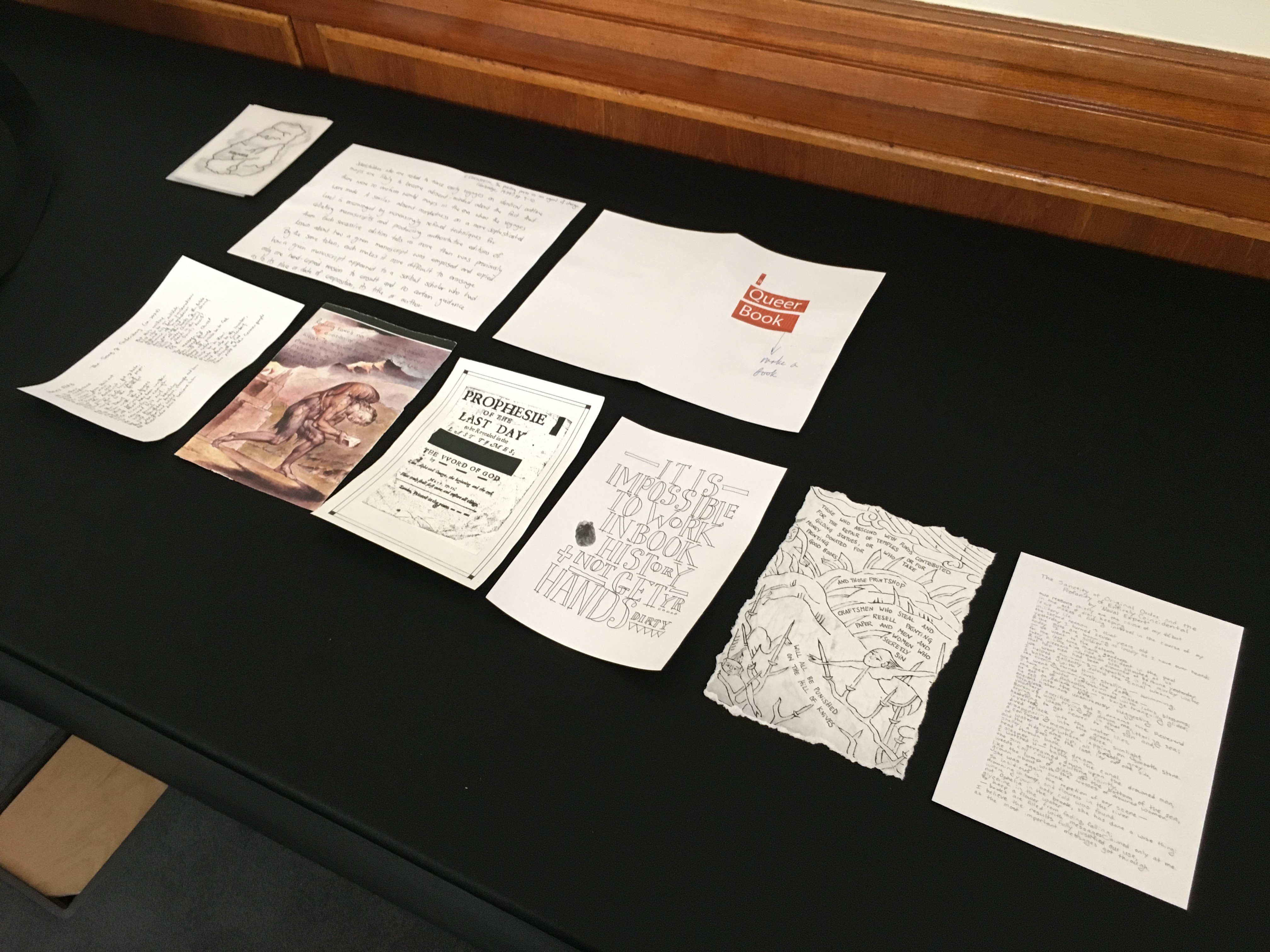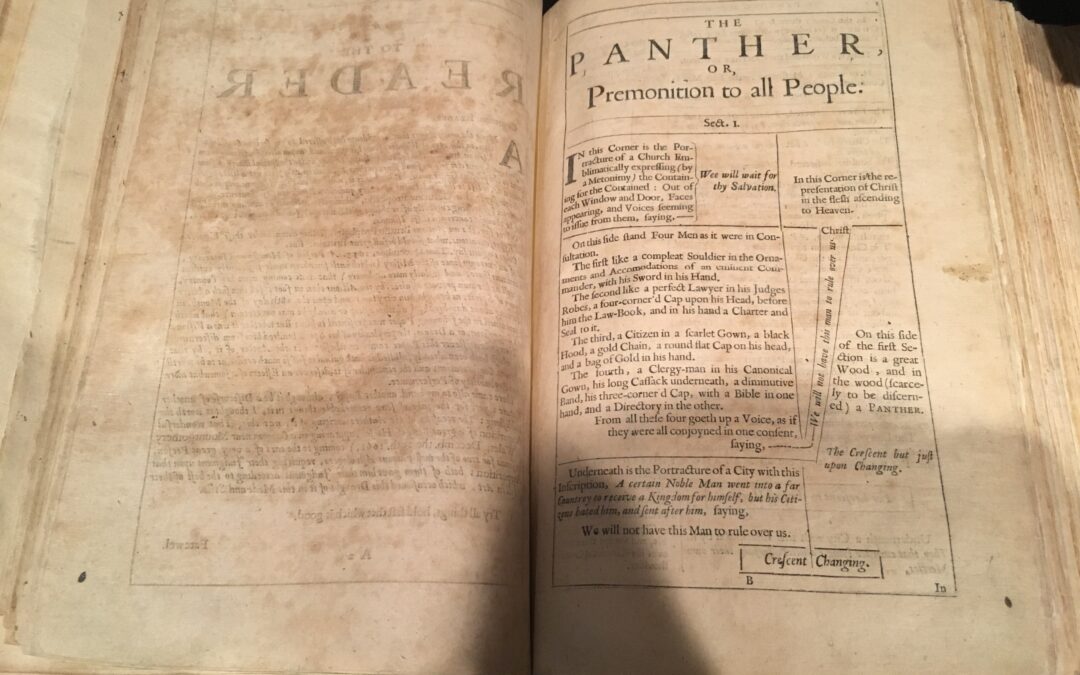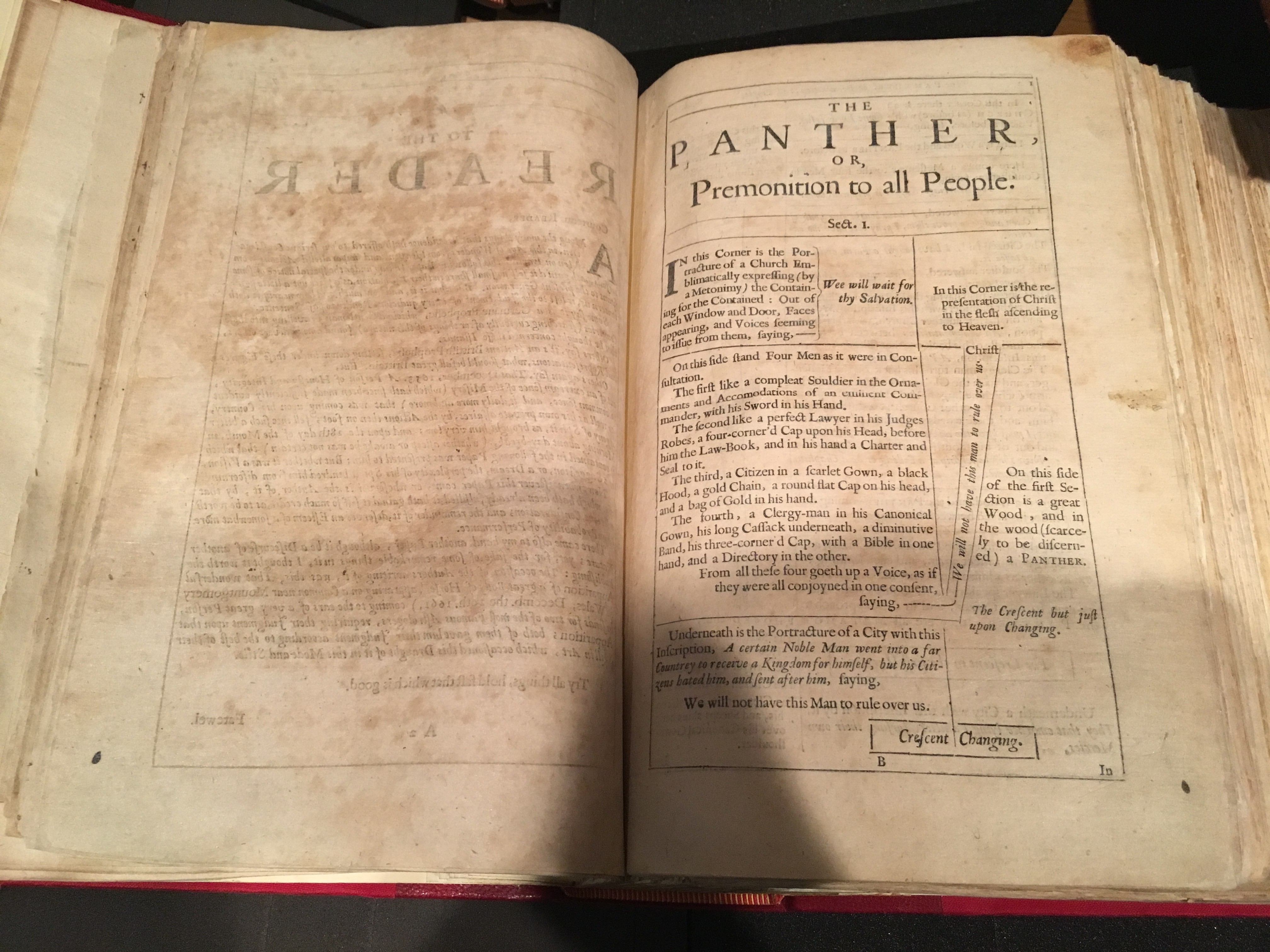Here’s an insight into week two of the London Rare Books School (LRBS). We welcome another contribution from Aislinn Kelly, English major at University of North Florida, who delves into The Queer Book.
“It is fitting that the The Queer Book class, which began the week with a discussion about collaborative bookmaking, would end the week by making a queer book. This book embodies several of the themes we covered during the week: pamphleteering, collaborative and individualistic bookmaking, imagined geographies, William Blake, anachronistic and thus queer ways of thinking and collating, and the queer relation between the body and the book (such as the idea that a book could embody these themes and our reactions to them), between bookmakers and their printed offspring (book-as-child metaphors, and vice versa, are everywhere once you are aware of them).
Brooke Palmieri organized opportunities for her students to engage with books in new ways: we played the book-history card game Codex Conquest, reviewing it as an experimental pedagogical tool and questioning its valuation (and thus modern Western civilization’s valuation) of books and historical events; and we visited the V&A Museum to interact with a selection of 20th-century artist’s books. These books queer their form’s usual purpose by being unreadable: one was inscribed with notations resembling Arabic numerals and Roman letters that never coalesced into recognizable words; another was hollowed out and filled with shells, the remnants of its pages blank but for a purple gradient; and still another was dipped in white paint, a ghost book.

The individual pages of a Queer Book before it was copied and sewn together. We made an edition of 10.
Since I am lately drawn to typography and unusual formal arrangements of print, I was delighted to find an example of queer typography when we visited the British Library, The Panther, or, Premonition to all People. Early in the week we watched a video about a bookmaking factory, and we agreed that the clip of mechanized paper-cutting would be visually satisfying if it were infinitely looped. I made a gif of this soothing mechanical repetition so that on the final day, like Blake using his “infernal printing method” in an industrial printing age, the Queer Book students handmade a book while this endless image of mass bookmaking played on the projector in the background—a great atmosphere to bring my time at the London Rare Books School to an end.
I hope to see The Queer Book offered again for future LRBS students to experience.”
We would like to thank Aislinn for her kind words on LRBS this year.




